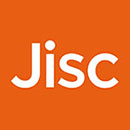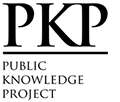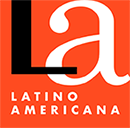El Congreso de los Estados Unidos. Un cuarto de siglo de equilibrio partidario: 1981-2007
DOI:
https://doi.org/10.26422/RJA.2022.0302.biaPalabras clave:
derechos civiles, juicio político, lobby, contrato con América, affaire, líderes políticos, mayorías, minorías, acuerdo del Senado, elecciones, corrupción políticaResumen
Desde 1981 hasta 2007, el Congreso de los Estados Unidos tuvo un reparto de poder bastante equilibrado entre republicanos y demócratas, aunque muchos de sus eventos pueden dar la sensación de que predominaron los primeros. Ronald Reagan emergía como una figura política fuerte luego de muchas décadas de predominio demócrata y, en el Congreso, Newt Gingrich –extravagante, imprudente y controvertido– no alcanzó las metas que se había propuesto, pero hizo mucha propaganda con su contract with America. Probablemente, el legado republicano más estable y duradero de estos años haya sido el rearmado de la Corte Suprema, que dejó de ser el tribunal liberal de las décadas de 1960 y 1970 para convertirse en un cuerpo cada vez más conservador, una tendencia que se ha acentuado en los últimos años. El equilibrio entre ambos partidos se verifica también en los escándalos más notorios del período. Reagan quedó claramente involucrado en el affaire Iran-Contras y Clinton fue presa de su aventura romántica, que lo condujo hasta el juicio político, aunque probablemente nunca estuvo muy cerca de la destitución. Ya en los últimos años de este período, los hechos terroristas del 11 de septiembre de 2001 y la guerra de Irak contribuyeron notablemente a incrementar el poder del Ejecutivo sobre el Congreso, como ocurre con todas las emergencias.
Descargas
Referencias
Barry, J. M. (1989). The Ambition and the Power: The Fall of Jim Wright: A True Story of Washington. Viking.
Blumenthal, S. (2003). The Clinton Wars. Farrar, Straus and Giroux.
Bork, T. H. (1978). The Antitrust Paradox: A Policy at War With Itself. Basic Books.
Bork, T. H. (1991). The Tempting of America, the political seduction of the law. Simon & Schuster.
Bork, T. H. (1996). Slouching Towards Gomorrah: Modern Liberalism and American Decline. Regan Books/Harper Collins.
Busby, R. (2001). Defending the American Presidency: Clinton and the Lewinsky Scandal. Palgrave-Macmillan.
Byrne, M. (2017). Iran-Contra: Reagan’s Scandal and the Unchecked Abuse of Presidential Power. University Press of Kansas.
Cohen, M. J. y Major, J. (Eds.). (2004). History in Quotations. Cassell.
Cooper, A. S. (2018). The Fall of Heaven: The Pahlavis and the Final Days of Imperial Iran. Henry Holt and Co.
Daschle, T. (2003). Like No Other Time: The 107th Congress and the Two Years That Changed America Forever. Crown Publishers.
Day, K. (1993). S & L Hell: The People and the Politics Behind the $1 Trillion Savings and Loan Scandal. W. W. Norton & Company.
Dionne E. J. (Jr.) y Kristol, W. (Eds.). (2001). Bush v. Gore. The Court Cases and the Commentary. Brooking Institution Press.
Dole, B. (2006). One Soldier’s Story: A Memoir. Harper Collins.
Draper, T. (1991). A Very Thin Line: The Iran-Contra Affairs. Hill & Wang.
Fisher, L. (2005). Military Tribunals and Presidential Power. University Press of Kansas.
George, A. L. (2020). The Last American Hero: The Remarkable Life of John Glenn. Chicago Review Press.
Gingricht, N. (Ed.). (1994). Contract with America: The Bold Plan by Rep. Newt Ginrich, Rep. Dick Armey and the House Republicans to Change the Nation. Times Books.
Gingricht, N. (2021). Beyond Biden: Rebuilding the America We Love. Center Street.
Greene, R. W. (2013). The Sting Man: Inside Abscam. Penguin Books.
Hastert, D. (2013). Speaker: Lessons from Forty Years in Coaching and Politics. Regnery Publishing.
Kean, T. H. y Hamilton, L. H. (2007). Without Precedent: The Inside Story of the 9/11 Commission. Vintage Books-Random House.
Kessler, R. (2017). The Richest Man in the World: The Story of Adnan Khashoggi. Grand Central Publishing.
Koh, H. H. (1990). The National Security Constitution: Sharing Power After the Iran-Contra Affair. Yale University Press.
Kornbluh, P. y Byrne, M. (Eds.). (1993). The Iran-Contra Scandal: The Declassified History. The New Press.
Largey, M. (5 de mayo de 2017). The Bad Grade that Changed the U.S. Constitution. National Public Radio. https://www.npr.org/2017/05/05/526900818/the-bad-grade-that-changed-the-u-s-constitution.
Reagan, R. (1990). An American Life. The Autobiography. Simon & Schuster.
Rotunda, R. D. y Nowak, J. E. (1999). Treatise on Constitutional Law (Vol. 2, 3a ed.). West Group.
Schwartz, H. (1988). Packing the Courts. The Conservative Campaign to Rewrite the Constitution. Charles Scribner’s Sons.
Segev, S. (1988). The Iranian Triangle: The Untold Story of Israel’s Role in the Iran-Contra Affair. Free Press.
Sorman, G. (1985). La Revolución Conservadora Americana (Trad. E. Sordo). Ediciones Folio.
Tower, J., Muskie, E. y Scowcroft, B. (1987). The Tower Commission Report. The Full Text of the Presiden’s Special Review Board. New York Times Special.
Tripp, L. y Carstens, D. (2020). A Basket of Deplorables: What I Saw Inside the Clinton White House. Post Hill Press.
U.S. Government Printing Office. (1987). Report of the Congressional Committees investigating the Iran-Contra Affair.
U.S. Government Printing Office. (2004). The 9/11 Commission Report. Final Report of the National Commission on Terrorist Attacks Upon the United States.
Walsh, L. E. (1997). Firewall: The Iran-Contra Conspiracy and Cover-Up. W. W. Norton & Co Inc.
Wells, R. (2019). The Enforcers: How Little-Known Trade Reporters Exposed the Keating Five and Advanced Business Journalism. University of Illinois Press.
Whitney, B. K. (1986). Barnes v. Kline: Picking the President’s Pocket. Minnesota Law Review,70, 1149-1184.
Woodward, B. (1987). Veil: The Secret Wars of the CIA, 1981-1987. Simon & Schuster.
Wright, J. (1984). Reflections of a Public Man. Madison Publishing.
Zelikow, P. D. y Rice, C. (1995). Germany Unified and Europe Transformed. A Study in Statecraft, Harvard University Press.
Zimmermann, M. (2001). Sandinista: Carlos Fonseca and the Nicaraguan Revolution. Duke University Press Books.
Publicado
Número
Sección
Licencia
Licencia Creative Commons Atribución-NoComercial-SinDerivadas 4.0 Internacional (CC BY-NC-ND 4.0).
Esta licencia permite copiar, distribuir, exhibir y representar la obra siempre y cuando se reconozca la autoría y se cite la obra de la forma adecuada. No se permite el uso comercial de la obra original ni la generación de obras derivadas.
Los autores garantizan a la Revista Jurídica Austral el derecho de ser la primera publicación del trabajo.













































